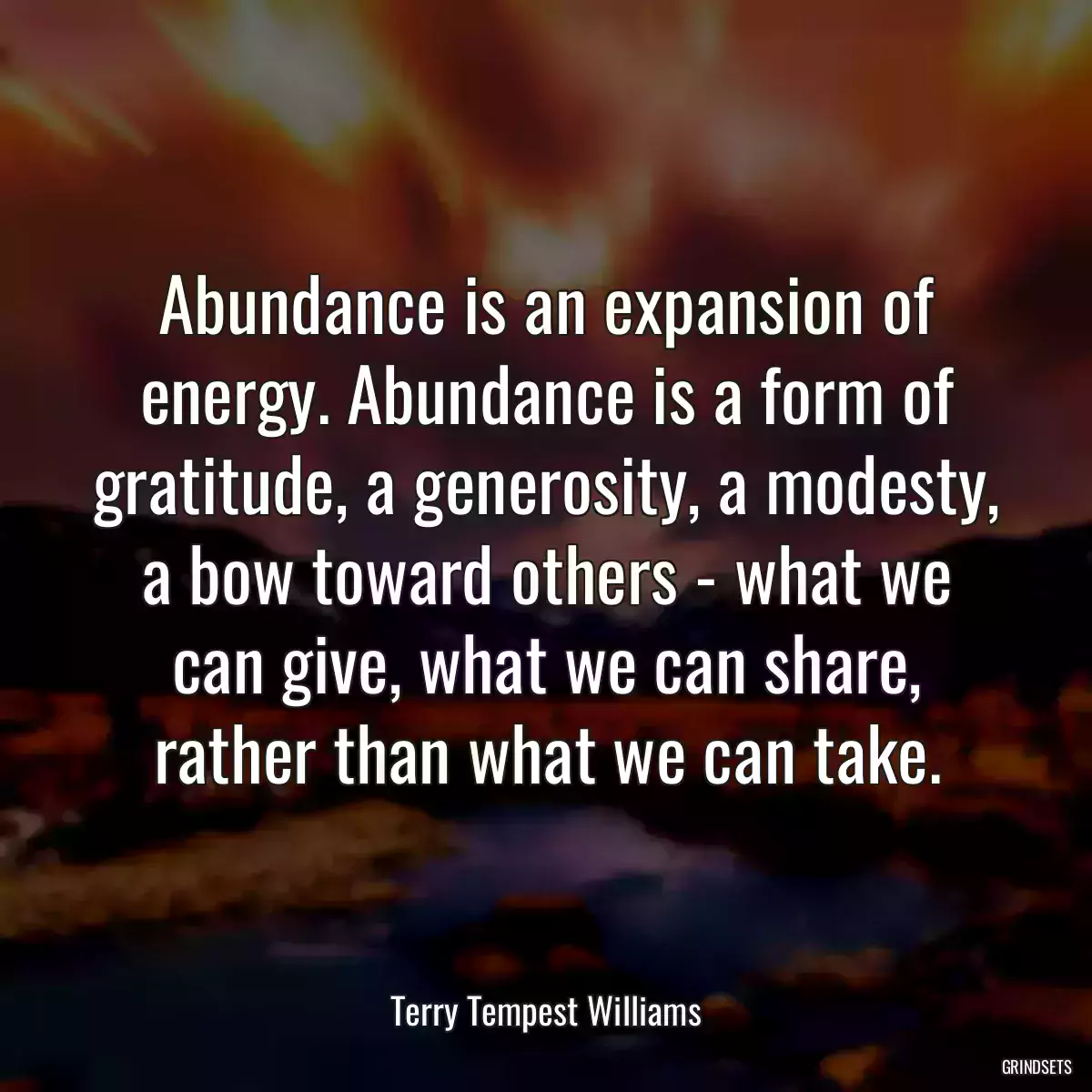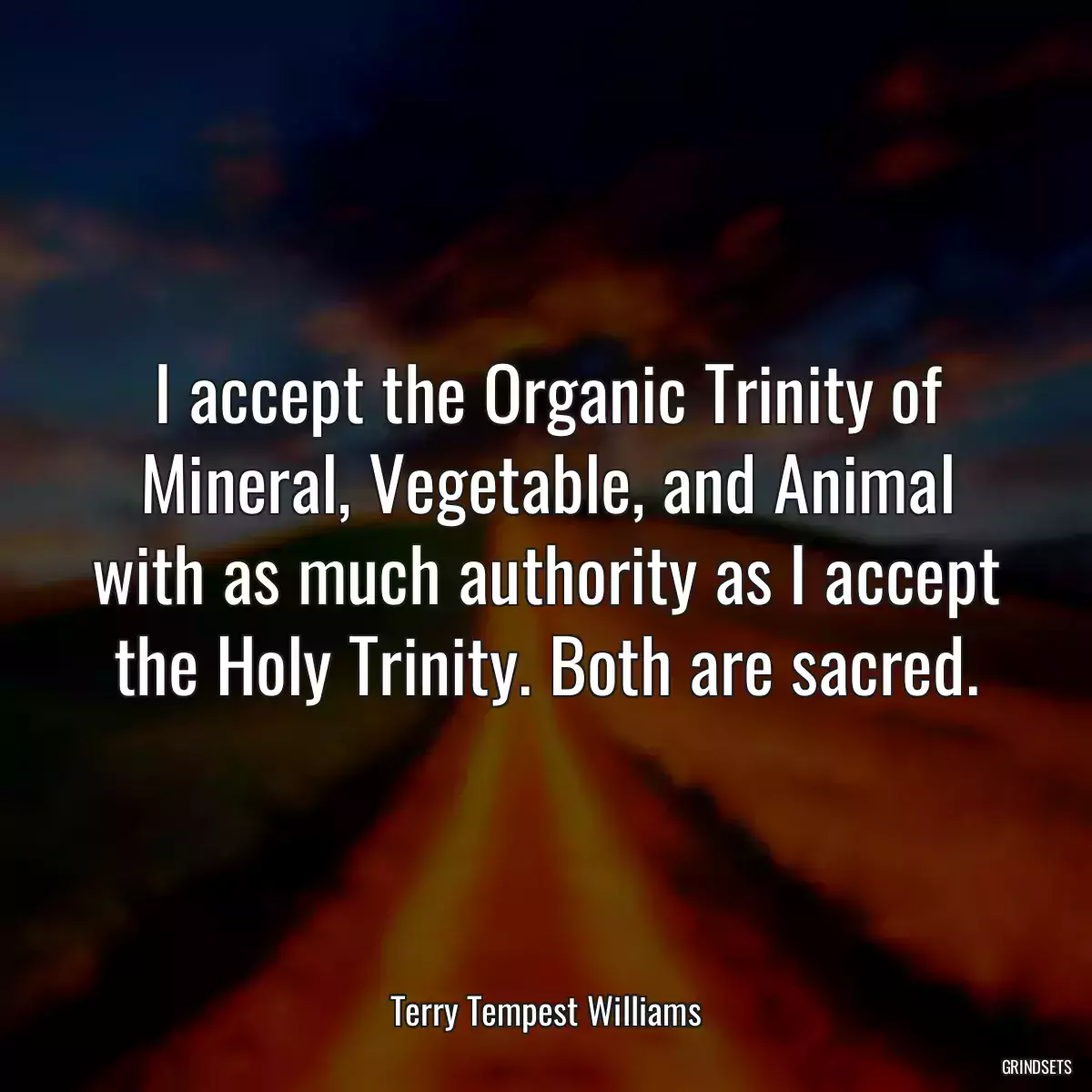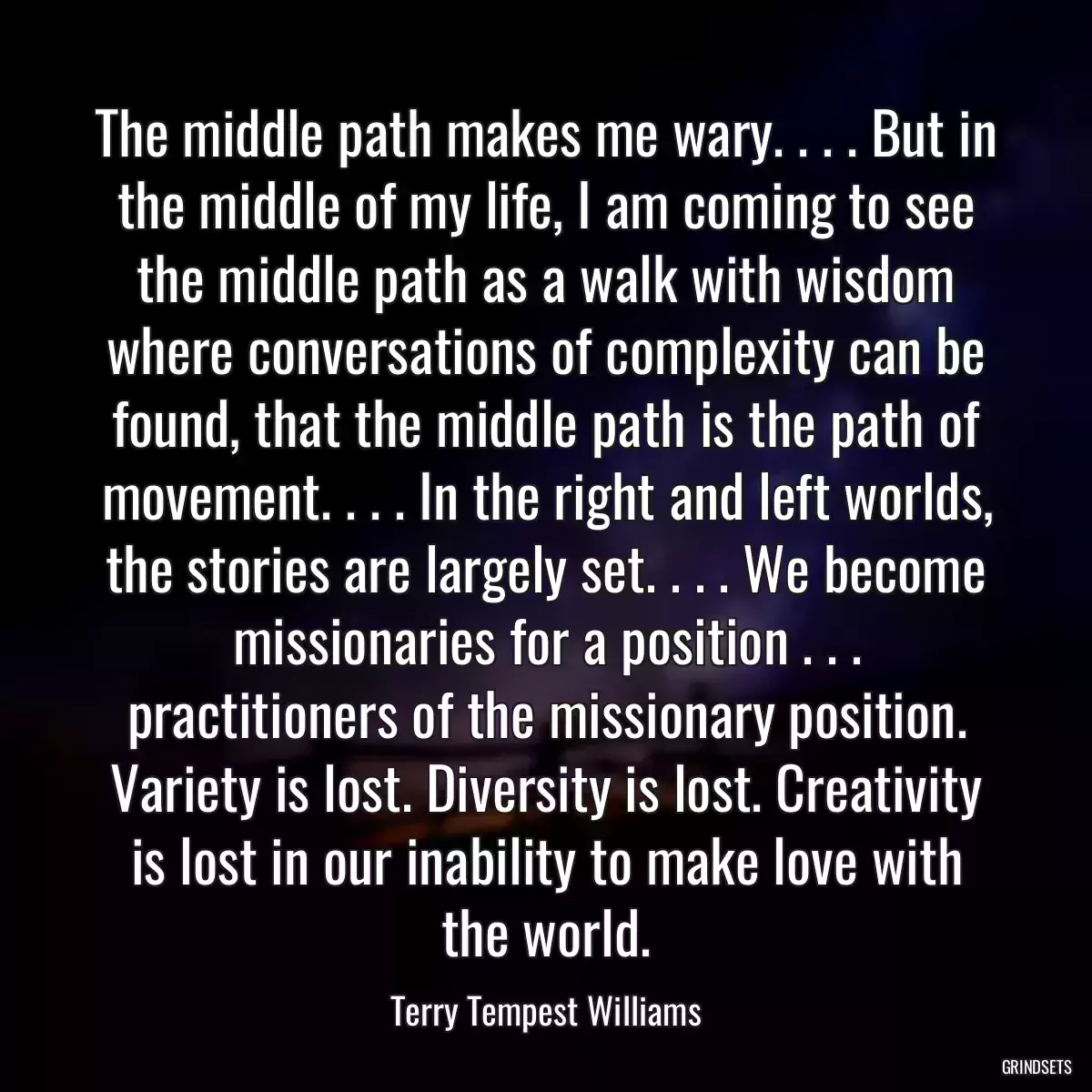
Quotes Terry Tempest Williams - page 2
Find dozens of Terry Tempest Williams with images to copy and share.

Greed is a deprivation of abundance, a hoarding, a constriction of energy.
We forget the nature of true power. The power within is abundance. The power without is greed.
Greed says there is never enough. Abundance says there is more than enough. Greed closes the door behind itself. Abundance opens the door for others.
You may also like
To engage in civil disobedience is to feel the abundance of courage, the gratitude for a democracy that still invites us to speak from our hearts, to act from our conscience and have faith in the consequences of moral action. Abundance is a form of consciousness.
Abundance is a dance with reciprocity - what we can give, what we can share, and what we receive in the process.
I think that what I was talking about was that as a woman growing up in a Mormon tradition in Salt Lake City, Utah, we were taught - and we are still led to believe - that the most important value is obedience. But that obedience in the name of religion or patriotism ultimately takes our souls. So I think it's this larger issue of what is acceptable and what is not; where do we maintain obedience and law and where do we engage in civil disobedience - where we can cross the line physically and metaphorically and say, "No, this is no longer appropriate behavior.
My activism is a result of my love. So whether it's trying to preserve the wilderness in Southern Utah or writing about an erotics of place, it is that same impulse - to try to make sense of the world, to try to preserve something that is beautiful, to ask the tough questions, the push the boundaries of what is acceptable.
I don't think there is anything as powerful as an active heart. They do not fear the wisdom of emotion, but embody it. They know how to listen. They are polite when they need to be and unyielding when necessary. They remain open, even as they push boundaries and inhabit the margins, understanding eventually, the margins will move toward the center. They are tenacious, informed, patient, and impatient, at once. They do not shy away from what is difficult. They refuse to accept the unacceptable. The most effective activists I know are in love with the world.

As children, we had access to all the open space imaginable. We would set up camps in rural Utah where the Tempest Company was at work laying pipe. We spent time around the West in Wyoming, Idaho, Nevada, and Colorado. Wild beautiful places. Now, many of these natural places have disappeared under the press of development.
I recently got back from Hiroshima and it was fascinating to me how the Japanese accommodate this paradox. We were talking about this word aware, which on the page looks like "aware," which speaks to both the pain and the beauty of our lives. Being there, what I perceived was that this is a sorrow that is not a grief that one forgets or recovers from, but it is a burning, searing illumination of love for the delicacy and strength of our relations.
For me, it always comes back to the land, respecting the land, the wildlife, the plants, the rivers, mountains, and deserts, the absolute essential bedrock of our lives. This is the source of where my power lies, the source of where all our power lies. We are animal. We are Earth. We are water. We are a community of human beings living on this planet together. And we forget that. We become disconnected, we lose our center point of gravity, that stillness that allows us to listen to life on a deeper level and to meet each other in a fully authentic and present way.
Each horizon, each place holds its own evolutionary power be it the prairie or the plateaus, the mountains or the marshes at Great Salt Lake. For me, this is the nature of peace. Our task is to learn how to see it, feel it, hear it, and care for these places as our own home ground.
It's strange how deserts turn us into believers. I believe in walking in a landscape of mirages, because you learn humility. I believe in living in a land of little water because life is drawn together. And I believe in the gathering of bones as a testament to spirits that have moved on. If the desert is holy, it is because it is a forgotten place that allows us to remember the sacred. Perhaps that is why every pilgrimage to the desert is a pilgrimage to the self.
The hostility of this landscape teaches me how to be quiet and unobtrusive, how to find grace among spiders with a poisonous bite. I sat on a lone boulder in the midst of the curlews. By now, they had grown accustomed to me. This too, I found encouraging-that in the face of stressful intrusions, we can eventually settle in. One begins to almost trust the intruder as a presence that demands greater intent toward life. On a day like today when the air is dry and smells of salt, I have found my open space, my solitude, and sky. And I have found the birds who require it.
The climate change movement is a river overflowing seeping into every nook and cranny.
It is important to remember all true change begins at the margins and moves toward the center. This does not make the climate change movement marginal, it makes it muscular, organic, with a true movement toward the center.
You may also like

The middle path makes me wary. . . . But in the middle of my life, I am coming to see the middle path as a walk with wisdom where conversations of complexity can be found, that the middle path is the path of movement. . . . In the right and left worlds, the stories are largely set. . . . We become missionaries for a position . . . practitioners of the missionary position. Variety is lost. Diversity is lost. Creativity is lost in our inability to make love with the world.
I worry, that we are a people in a process of great transition and we are forgetting what we are connected to. We are losing our frame of reference.